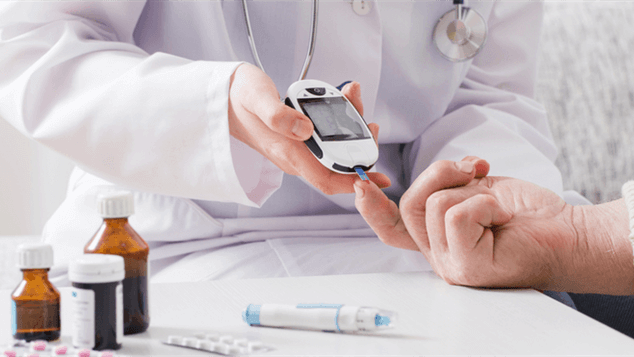What is Diabetes?
Normally, the pancreas makes the hormone, insulin, to help the body store and use the sugars and starches that you eat. Diabetes develops when the pancreas does not make enough insulin, or the cells in your body become resistant to insulin, Insulin usually keeps a tight control on blood sugar levels. People with diabetes have blood sugar levels that high and need to be through diet, medication, and lifestyle changes. Diabetes affects your digestive health as a result of poor nutrition and uncontrolled blood sugar levels.
What Digestive Disorders Can Be By Diabetes?
Gastrointestinal (GI) disorders are very common in people who have diabetes. Some of the common digestive disorders seen with diabetes include delayed emptying of the stomach (gastroparesis), ulcers, yeast infections. These disorders cause damage to the nerves. Also blood vessels in the GI tract from elevated blood sugar levels. This damage causes either increased or decreased function of the intestines with a broad range of symptoms.
What Are the Symptoms of These Disorders?
The symptoms seen in digestive disorders are varied and complex. They include diarrhea, constipation, bloating, abdominal pain, nausea and vomiting. When a patient sees a Gastroenterologist, he/she takes a detailed history of all the symptoms that the patient is having. This helps the physician to get an idea of what tests you need. The physician will also perform a physical exam looking for signs of diabetes induced damage to the GI tract.
How Are Digestive Disorders Diagnosed?
Once the history and physical is completed the physician will create a treatment plan for the patient to follow. Some tests are non-invasive such as x-rays, sonograms, CT scans, MRI scans, and lab tests meaning that they do not require sedation or surgery. If these tests do not reveal the cause of the problem, further invasive tests can be done. These include upper endoscopy (EGD) and colonoscopy, both of which require sedation. Since digestive disorders are complex, it may take a combination of several tests along with a trial of different treatments to the pinpoint the specific problem.
For example, an oral yeast infection can be with a physical exam that shows a white coating of the tongue and mouth. However, to diagnose a yeast infection of the esophagus, the tube connecting the mouth to the stomach, an EGD has to be. Likewise, stomach ulcers can be caused by a certain kind of bacteria (H. pylori), which can be to be detected by a biopsy. This is where a small piece of tissue is taken from the stomach during an EGD. Diagnosis of gastroparesis can be made with a test called gastric emptying scintigraphy. It tests how the stomach empties after eating a solid-food meal.
Can These Disorders Be Controlled?
Since these conditions poorly controlled blood sugar levels, the first goal is to get these levels under control. By checking blood sugar levels frequently, steps can be if they are too high. Medication along with lifestyle changes in diet, exercise, stress levels, and sleep are all important in controlling diabetes.
The American Diabetes Association recommends some type of carbohydrate monitoring to aid in the control of blood sugars. This can be by carb counting or using the Glycemic Index of different foods, or a combination of the two. Making a food log of all carbohydrates eaten along with blood sugar levels two hours before and after eating can help determine the number of carbs that are right in your diet. The Glycemic Index, a number given to different types of foods containing carbs. Those foods with a lower number (55 or less) are better choices for diabetic patients. These include most fruits, non-starchy vegetables, oatmeal, pasta, and whole wheat bread.
Medications including insulin may also be necessary. Diabetes is a progressive illness, and oral medications may not be enough to control it after some time. Add insulin to help control blood sugar levels along with making the lifestyle changes discussed above.
What Is The Prognosis?
Since diabetes has no cure, the amount of time that a person has had it and the amount of control determines the severity of the GI problems. By consistently trying to control blood sugar levels, GI issues can manage. Your Gastroenterologist will create an individual treatment plan geared toward your specific issue. This may include testing, medication, and lifestyle changes.
If you are having any type of gastrointestinal distress or discomfort, DHAT Gastroenterologists are here to help. Call to schedule an appointment with one of our physicians today to begin the process of healing.

